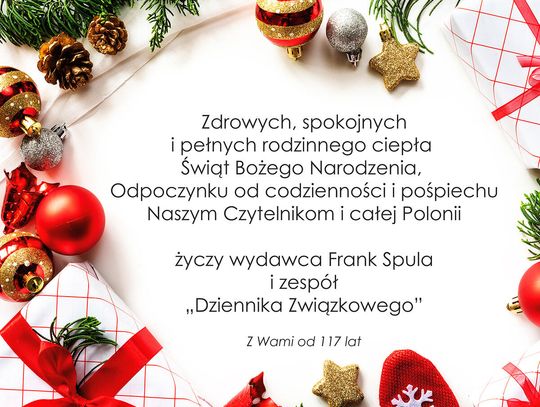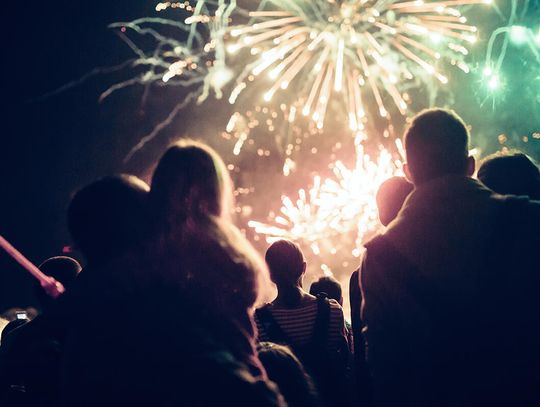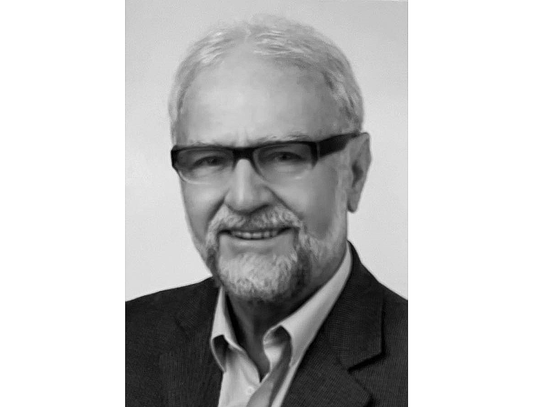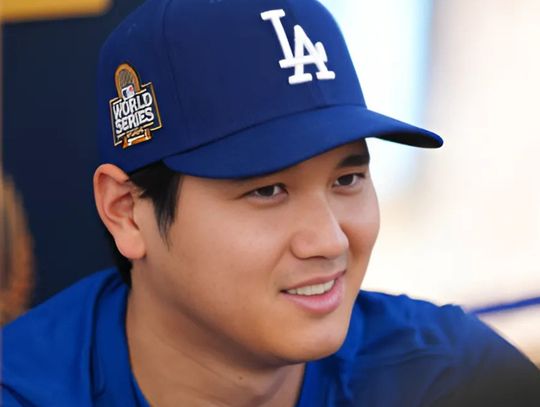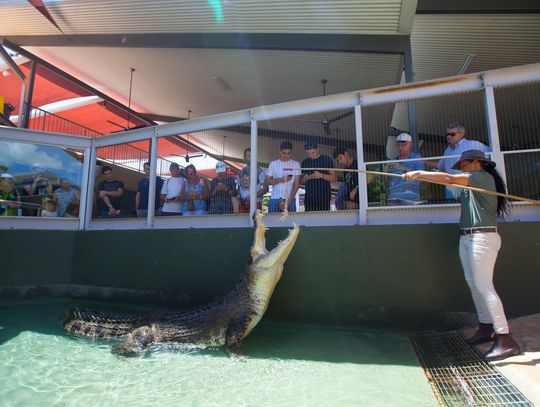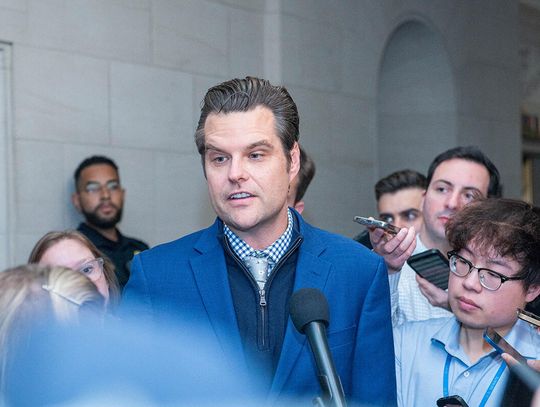Siedziałem i oglądałem dziś rano wiadomości. Wszystkie o pandemii były złe, bardzo złe. Naukowcy – którym ufam, a wiem, że wielu im nie ufa – mówili o tym, jak cała ta pandemia COVID-19 będzie jeszcze gorsza w nadchodzących miesiącach. Mówili też, że prawdopodobnie zostanie ona z nami jeszcze przez rok, a może i dwa.
To sprawiło, że pomyślałem o tych wszystkich rzeczach, za którymi tęsknię i które prawdopodobnie bym robił, gdybym nie musiał przebywać w kwarantannie w domu i zachowywać dystansu społecznego. I miałem ostatnio sen, który możnaby nazwać przewidzeniem tego, jak będzie wyglądał mój pierwszy dzień, kiedy skończy się pandemia.
Oto jak wyglądało.
Żyjąc z pandemią od marca 2020 roku, obudziłem się pierwszego poranka po pandemii i zacząłem śpiewać i tańczyć, odwiedzać ludzi, których kocham i tych, których nie lubię.
Potem zjadłem ogromne posiłki w moich trzech ulubionych restauracjach, płacąc wszystkim kelnerkom i kelnerom pocałunkami, a szefom kuchni złotem. Uścisnąłem wszystkich ludzi, którzy oprócz mnie jedli w restauracjach i poprosiłem, żeby zatańczyli ze mną bossa novę.
I wróciłem na chwilę do domu, jadłem, piłem, paliłem, śmiałem się, świętując ten święty dzień jednym tchem, nawet jeśli nie była to niedziela. A później wskoczyłem do metra i bez żadnego powodu gwizdałem na każdym przystanku.
A potem na ulicy znalazłem dziecięcy niebieski anielski trójkołowiec i jechałem nim tak, jakbym jechał do chwały, ponieważ tak było. A nawet zatrzymałem się w pewnym momencie, aby podnieść gazetę leżącą na ulicy, mówiącą, że pandemia skończyła się ostatecznie. Podarłem ją na kawałki i rzuciłem na ulicę i w powietrze.
I poszedłem do Super Walmartu i udawałem, że sprzedaję magiczne wróble wszystkim ludziom, chodząc i tańcząc po całym sklepie, o czym tak długo marzyli, podobnie jak ja.
Następnie założyłem mój najlepszy kapelusz w kolorze truskawkowym i wędrowałem w południe przez śródmieście Chicago, nucąc „Blues St. Louis” i rozdając bukiety kwiatów wszystkim, którzy wędrowali ze mną po ulicy.
W końcu odwróciłem się w kierunku wielkiego wiekowego słońca, które uśmiechało się do mnie i do wszystkich i powiedziałem: „Kochanie, jestem twój”.
My Life after the Pandemic
This morning, I was sitting around watching the news shows, and all the news about the pandemic was bad, really bad. The scientists — who I trust although I know many don’t — were talking about how this COVID pandemic was just going to get worse in the next couple of months. They also said that probably the pandemic was going to be around with us for at least another year, maybe two.
It got me thinking about all the things I miss and all the things I would love to be doing if I didn’t have to stay quarantined in my house and practicing social distancing, and I suddenly had a dream, a vision you might call it, of what my first day of non-pandemic life would be like.
And here’s what that vision looked like.
After living with the pandemic since March of 2020, I woke up on the first post-pandemic morning and started singing and dancing and visiting the people I loved and the people I hated.
And then I ate enormous meals at three of my favorite restaurants and paid all the waiters and waitresses in kisses and paid the chefs in gold, and I hugged all the folks who were eating and asked them all to dance the bossa nova with me.
And then I went back home just for a minute and ate and drank and smoked and laughed and kept holy the Lord’s Day all in the same breath even though it wasn’t Sunday, and then I hopped on a subway and whistled at every single stop for no reason whatsoever.
And then I found some kid’s blue angelic tricycle right there in the street, and I rode it like I was riding to glory because I was, and I even stopped at one point to pick up a newspaper lying there in the street telling me the pandemic was over at last, and I tore it up and threw its little-bitty pieces into the street and into the wind.
And then I went to a Super Walmart and pretended to sell magic sparrows to all the people walking and dancing through the store that they had been dreaming about like me for so so long.
And then I put on my best strawberry-colored hat and wandered through midday downtown Chicago humming “the St. Louis blues” and passing out bouquets of flowers to everyone wandering the street with me.
And finally, I turned to the big old sun smiling down at me and everyone else and said, “Honey I’m yours.”
John Guzlowski
amerykański pisarz i poeta polskiego pochodzenia. Publikował w wielu pismach literackich, zarówno w USA, jak i za granicą, m.in. w „Writer’s Almanac”, „Akcent”, „Ontario Review” i „North American Review”. Jego wiersze i eseje opisujące przeżycia jego rodziców – robotników przymusowych w nazistowskich Niemczech oraz uchodźców wojennych, którzy emigrowali do Chicago – ukazały się we wspomnieniowym tomie pt. „Echoes of Tattered Tongues”. W 2017 roku książka ta zdobyła nagrodę poetycką im. Benjamina Franklina oraz nagrodę literacką Erica Hoffera, za najbardziej prowokującą do myślenia książkę roku. Jest również autorem dwóch powieści kryminalnych o detektywie Hanku Purcellu oraz powieści wojennej pt. „Road of Bones”. John Guzlowski jest emerytowanym profesorem Eastern Illinois University.
―
John Guzlowski's writing has been featured in Garrison Keillor’s Writer’s Almanac, Akcent, Ontario Review, North American Review, and other journals here and abroad. His poems and personal essays about his Polish parents’ experiences as slave laborers in Nazi Germany and refugees in Chicago appear in his memoir Echoes of Tattered Tongues. Echoes received the 2017 Benjamin Franklin Poetry Award and the Eric Hoffer Foundation's Montaigne Award for most thought-provoking book of the year. He is also the author of two Hank Purcell mysteries and the war novel Road of Bones. Guzlowski is a Professor Emeritus at Eastern Illinois University.



